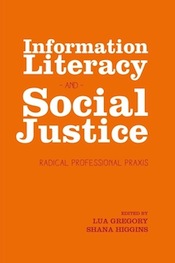I read a lot of books. Some I remember, and some I forget. Some I wish I would forget, and some, I'm surprised that I remember them so clearly.
During my sophomore year in college, all the student leaders were in a seminar class to develop leadership skills, process our various leadership roles, and learn how to be a supportive community (this was at a Christian, liberal arts college on the west coast). This seminar class introduced me to Henri Nowen, Ronald Sider, and another little book I won't forget (its the one in the middle):
(Thank you, Ron Benefiel)
I have not read the book since then, but some lessons stick with a person.
The Church isn't exactly known for questioning authority. Some denominations have more structure than others, but mainline, Christian faiths believe in some balance of the authority of God and the Scripture. How that gets teased out in our daily lives is the primary matter of debate and division, but let's just leave it broad for now.
The argument posed in "Upside-Down Kingdom" is that Jesus, as the Christ, was incarnated in order to disrupt the status quo. Not just the authority of the Roman Empire, mind you, but the authority of the religious leaders in his culture at the time. That idea should change the way one reads the Sermon on the Mount, and it did for me. It's not all figurative; when he declared "God's kingdom is coming" he meant that all the poor, disenfranchised of the world should have access to God's grace, something that had before that point been reserved only for a select few.
What does any of this have to do with critical pedagogy and information literacy?
Information Literacy and Social Justice
Radical Professional Praxis
Lua Gregory and Shana Higgins, Editors
Foreword by Toni Samek
Library Juice Academy
The introduction to the above text offers an argument on how critical pedagogy, on it's best day, moves students toward action. This method does not simply teach students to be critical just because; the purpose is to move students toward engagement in their communities and to challenge the current power structures that oppress those communities. As I read (okay, I've read three articles so far) the connections are firing in my mind that this teaching, which at its core creates habits of critical thinking that move a person to action, is a Christian way to approach information.
I am positive there is much more that I need to read in order to make a convincing argument- right now these two ideas are just connected in my head by a thin thread, a mere filament in a light bulb. But I am inspired to pursue these connections as I begin to cultivate the "habit of thinking and teaching critically."





No comments:
Post a Comment